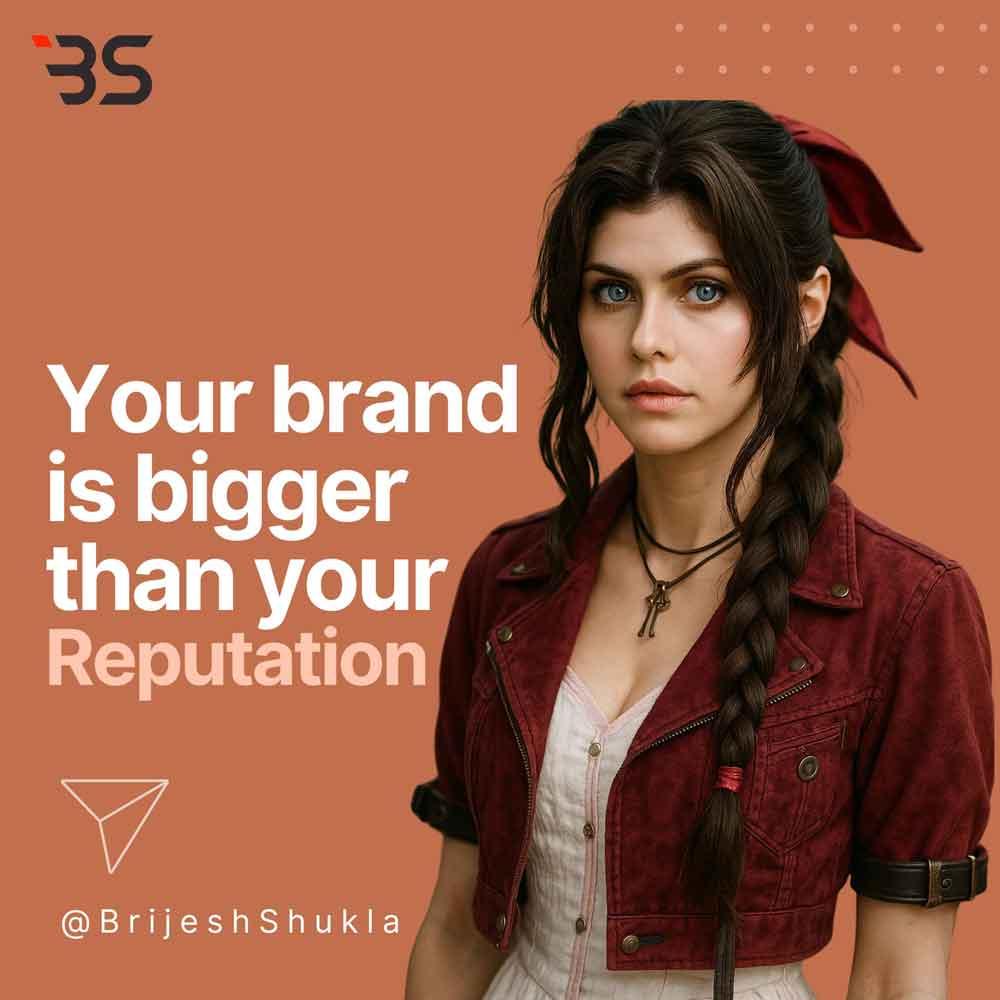Brijesh Shukla
Brijesh Shukla (Mr. Brilliant) AI - Artificial Intelliigence

In business, many believe that reputation is everything but the truth is, your brand is far more powerful. Reputation is what people say about you when you’re not in the room. Your brand is what they think, feel, and believe—even before you speak.
And in today’s attention economy, perception drives reality.
Based on what you’ve done
Reactive (damage control, reviews, word-of-mouth)
Example: A restaurant with great food but slow service
Based on what you stand for
Proactive (storytelling, emotional connection, vision)
Example: Apple = Innovation, Nike = Empowerment, Tesla = Disruption
🔹 Key Insight:
Reputation is earned. A brand is built.
A strong brand shapes perception before facts even matter.
Example:
Tesla’s brand makes people ignore flaws (recalls, delays) because they believe in the mission.
Coca-Cola’s brand makes people choose nostalgia over healthier options.
People don’t buy products—they buy belief systems.
Example:
Harley-Davidson riders don’t just buy motorcycles—they buy a rebellious identity.
Patagonia customers don’t just buy jackets—they buy environmental activism.
A strong brand can weather crises (e.g., Starbucks after racial bias incident).
A weak brand collapses at the first sign of trouble (e.g., Theranos).
What do you stand for? (Not what you sell.)
Why should anyone care? (Emotional hook > features.)
People remember stories, not sales pitches.
Example:
Airbnb = “Belong Anywhere” (not “rent a room”).
Dove = “Real Beauty” (not “soap”).
Visuals (Logo, colors, fonts)
Voice (Tone, messaging, slogans)
Values (Live them publicly—customers notice.)
Great brands become movements (e.g., Apple’s “Think Different” fans).
Encourage user-generated content, hashtags, and community.
Reputation: Overpriced, restrictive ecosystem.
Brand: “Think Different” = Loyalty beyond logic.
Reputation: Sweatshop scandals in the 90s.
Brand: “Just Do It” = Unstoppable cultural force.
Reputation: Elon’s controversies, build quality issues.
Brand: “The Future of Energy” = Fans defend it relentlessly.
You can have:
A good reputation (people like you)
Or a powerful brand (people believe in you)
Which one lasts longer? Which one drives unstoppable growth?
Your reputation is what people say.
Your brand is what they remember.
Are you just fixing problems—or are you crafting a legend?
What’s one brand you love NOT because of logic, but because of how it makes you feel? Share below!
#Branding #Marketing #BusinessStrategy #BrandIdentity #Leadership
Your email address will not be published. Required fields are marked *